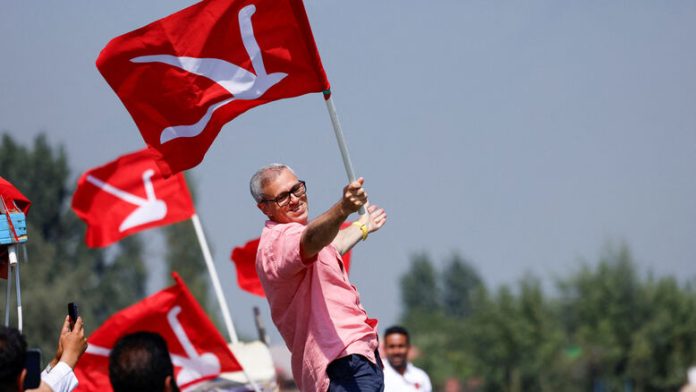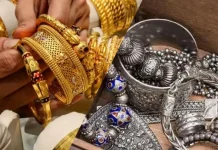National Conference(NC) party vice-president, Umar Abdullah, greets lieutenant governor Manoj Sinha to take oath as the first chief minister of the union territory of Jammu and Kashmir. The oath ceremony was conducted on 16th October 2024 in Srinagar. Abdullah was elected after the first-ever elections in Jammu and Kashmir post Article 370 abrogation in the state. Along with him, five other ministers also took the oath. This includes three ministers from the Jammu division and three from the Kashmir division, including Umar Abdullah. In the Jammu division, the BJP sweeps to victory.
The new National Conference (NC) government of Jammu and Kashmir is a coalition government with the Congress party. Congress has decided to stay out of the active cabinet, while the inclusion of Mehbooba Mufti’s PDP in the new government of Jammu and Kashmir is still ambiguous.
Demand for Statehood
The NC-Congress-led government in the newly formed union territory of Jammu and Kashmir seeks to restore statehood as one of their first few steps after coming to power. Omar Abdullah is determined to pass a resolution in his first cabinet meeting after taking charge as the new CM. “After the formation of the government, I hope in the first cabinet meeting, the cabinet will pass a resolution impressing upon the Centre to restore the statehood. The government should then take that resolution to the prime minister”, said Abdullah.
According to the CM, the demand for statehood was promised by the Prime Minister, Home Minister and other ministers after conducting the de-limitation exercise and peaceful elections in the state.
When asked about his party’s relation with the centre, Abdulla responded, “The people have not voted for a confrontation. The people of J-K have voted because they want employment, they want development, they want the restoration of the statehood, they want to address electricity and other issues and that redressal will not happen by having a confrontation with New Delhi.”, Abdullah said.
The statement was in light of the decision of the current J&K LG, Manoj Sinha, to elect five MLAs from the Bharathi Janta Party. These MLAs will be included in the newly formed government. For Abdullah, these five MLAs will not be able to impact the decisions of the elected government a lot. He rather confidently spoke about representing the voices from Kashmir, those who elected his party to power.
The Jammu and Kashmir Congress chief Tariq Hameed Karra told the press that the party has decided to stay out of the cabinet government and provide outside support to the NC government’s demand for statehood. The Congress party has been demanding the restoration of statehood of J&K from the centre and Prime Minister Narendra Modi. However, Congress has also left hints of joining the government in days to come.













